Oud Player on the Tel
HERE Arts Center, NY, November 2024
Produced as part of the Sublet Series program
Set in the foothills of Jerusalem in 1947, the play follows a family of Jewish refugees from Europe, after the destruction of World War II. Amir, the unofficial leader of the small Palestinian village of Bayt Jiz, welcomes Melke, the patriarch of the arriving Jewish family, and they become fast friends. Amir invites Melke into his home, teaches him the intricacies of growing olives and assures him that things will not be the same for him and his family here, as they were up in the northern lands.
The world is changing, however. Amir's nephew Mahmud discovers Herb Gordon, a famous American new used car dealer, and takes his name and assures that he will bring motorcars to the ancient land. Unbeknownst to him, Melke's son Moritz, recently arrived from Switzerland, has discovered the same thing -- and has, as well, changed his name to Herb Gordon. When they meet, they both declare that the land is not big enough for two Herb Gordons.
Moritz falls in love with Mahmud's sister. The two Herb Gordons argue. The cold winds of history blow, but Amir -- a Sufi mystic -- assures that history can be changed, or at the very least ignored. Melke and his friendship grows stronger and deeper.
But the winds of history cannot be staid.
Cast
Rachid Halihal (Oud player and original score)
Mark Quiles* (Amir)
Mark Peters* (Melke)
Inji El Gammal* (Fatima)
Maya Koshaba* (Rashida)
Jennifer Tulchin* (Shoshana)
Gary Brintz* (Moritz)
Hari Bhaskar* (Mahmud)
John Druzba* (Understudy)
Hala Shah* (Understudy)
* Member of Actors Equity Association
Directed by Jesica Garrou
Set Design: Richie Oullette
Lighting Design: Riva Fairhall
Costume Design: Cathy Small
Choreography: Hala Shah
Stage Manager: Andrew Kasper
Assistant Stage Manager: Amanda Reynoso
PR Representative: Andrea Alton
Oud Player on the Tel: The conflict in the Middle East as seen through the prism of two families in post World War II Palestine, TheaterScene, Joel Benjamin, November 18, 2024
And from ShowScore:
“The Nakba is not an easy subject to present but it’s absolutely necessary because history cannot be erased and it is still ongoing. I was a bit nervous going into the play because I’ve been disappointed several times about how Palestinians were portrayed. Oud Player on the Tel portrayed Palestinians very well and there was no stereotype/propaganda of Palestinians and Muslims which I’m grateful for. I loved the friendship between Amir and Melke. It’s interesting that both have the same meanings basically like one is “Prince” and another is “King” both are royalty. There were also two Herb Gordons which was an interesting juxtaposition because two “royals” seemed to get along well together while existing as equals while the two “Herb Gordons” were in competition trying to outdo the other. Great comedic relief! I loved the set design with the olive tree panels especially since the olive tree is a major symbol of hope and existence to Palestinians. Also the props were fascinating, especially the motor cars that Mahmud and Moritz were driving! I never saw anything like them. I also loved the lighting, my favorite was when Rashida and Moritz were coming into Union and it looked like they were dancing, the lighting was so beautiful on their faces.. I can’t remember if it was orange and blue lights but I remembered thinking of the contrasting colors you normally wouldn’t put together somehow working together almost like showing Rashida and Moritz coming from two separate backgrounds you wouldn’t expect to come together yet here they are and they’re making a beautiful spectacle. The entire cast was incredibly talented! Rachid Halihal on the Oud was so good in the beginning when we are all being seated. The music was beautiful! Every single one of the characters makes a place in your heart! Please go see this production while you can!” Noor
“This story is one that truly needs to be heard, especially in these times. It beautifully captures the importance of understanding history and seeing both sides of a narrative. Rashida’s monologue deeply resonated with me, portraying a young girl’s journey of self-discovery, her connection to culture, and the beauty of exploring love and the world around her. The play is both powerfully written and exquisitely acted, leaving a lasting impression. I’m grateful to have experienced it twice, and each time, it reveals new layers of its profound message.” Isabel
“Set in 1947, as the founding of Israel unfolds, the dark, often humorous play explores the pursuit of coexistence. It isn't easy, especially if you go with a political agenda. Kudos to Playwright Tom Block who opens a doorway to understanding both sides' perspectives and offering new ones in a situation in which most people feel sure in their too often one-sided perspectives. The play is set in the past BUT as Tom states in an interview, "We really need to keep having these conversations until even a frigid peace with a big fat line of demarcation, with UN peacekeepers along it, would be much, much better than what is currently happening there". This poignant, well-conceived, and well-executed play ends on Nov 24th.” Elisa
“Beautifully written, directed, acted and scored. Extremely engrossing, informative and heartfelt, as well as painful and humerous.“ Meryl
“A thought-provoking play that invited me to think about a complicated and challenging topic from multiple perspectives.“ Warren
“The story is sobering and relevant, told with sensitivity and compassion. The acting was superb & the story telling was tight. There was humor and tenderness, which made the climax even more impactful. Highly recommend.” Susane
“This is a brilliantly written play which was enhanced by the direction and acting. It is am important narrative for all to see. I am moved by the story. This one will sit with me for awhile.” Kenda-Le
And:
“Antisemitic inaccurate and awful. Cultural appropriation of a Jewish gem, Fiddler On The Roof, by creating a conflict between imaginary Jewish settlers intent on ethnic cleansing of Palestine. I stayed the entire time horrified that the promotion of this show was to engender peace between these two marginalized communities, and was disgusted by the simplistic and inaccurate historical revisionism intended to elicit hatred of Jews (not just Israelis, by the way) using age-old antisemitic tropes. I was appalled by this vapid, antisemitic cultural misappropriation of Judaism. Shame on the writer, the director, the producer and the actors. It only engenders contempt in a time when what we truly need is communication.” Ian
“While well-acted, the writer misrepresented history. I'm not sure how it's possible to tell the story of the Arab-Israeli War without mentioning who participated on the Arab side. Israel's survival was not foreordained, and the violence was not one-sided, as it was presented here. The portrayal of most Jews was hateful. I'm afraid that those who came to this performance to learn came away the poorer for it.” Sarah
“Tom Block's production at HERE Arts Center claims to bridge divides through its story set in 1947 Palestine, but instead reinforces problematic narratives through serious historical inaccuracies and unbalanced character portrayals. The play's historical revisionism is its most glaring flaw. By fabricating elements like Palestinian currency and flags in 1947 Mandate Palestine, it presents an ahistorical narrative that retroactively imposes post-1960s Palestinian national identity onto a 1947 setting. This isn't merely creative license – it's historical distortion. The character development reveals concerning biases. While claiming neutrality, the play relies heavily on stereotypical representations of Jewish characters, particularly using "argumentative" traits as comic relief, while Arab characters escape similar scrutiny. The inappropriate parallel drawn with "Fiddler on the Roof" further demonstrates this imbalance, misappropriating a celebrated work of Jewish cultural expression to serve a distorted narrative. At a time when accurate historical representation is crucial, this production prioritizes political messaging over truth. Rather than fostering understanding, its combination of historical inaccuracies and unbalanced character portrayals risks deepening divides and perpetuating harmful stereotypes. Theater should certainly engage with complex historical themes, but it must do so responsibly. "Oud Player on the Tel" unfortunately demonstrates how artistic license, when unchecked, can cross the line into misrepresentation.” Robert

Moritz (Gary Brintz) and Rashida (Maya Koshaba), with Melke (Mark Peters) and Amir (Mark Quiles)
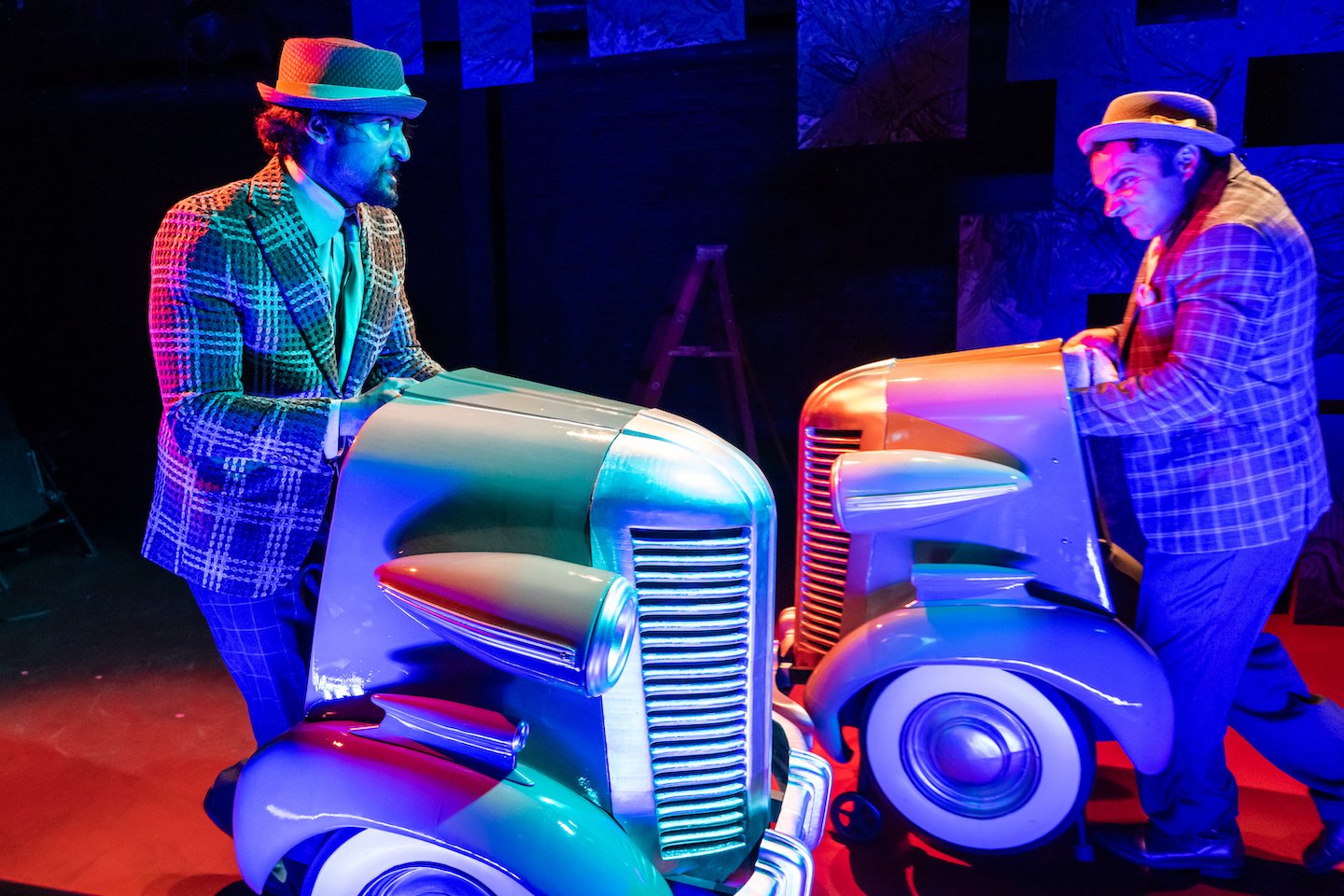
Mahmud - Herb Gordon (Hari Bhaskar) and Moritz - Herb Gordon (Gary Brintz)
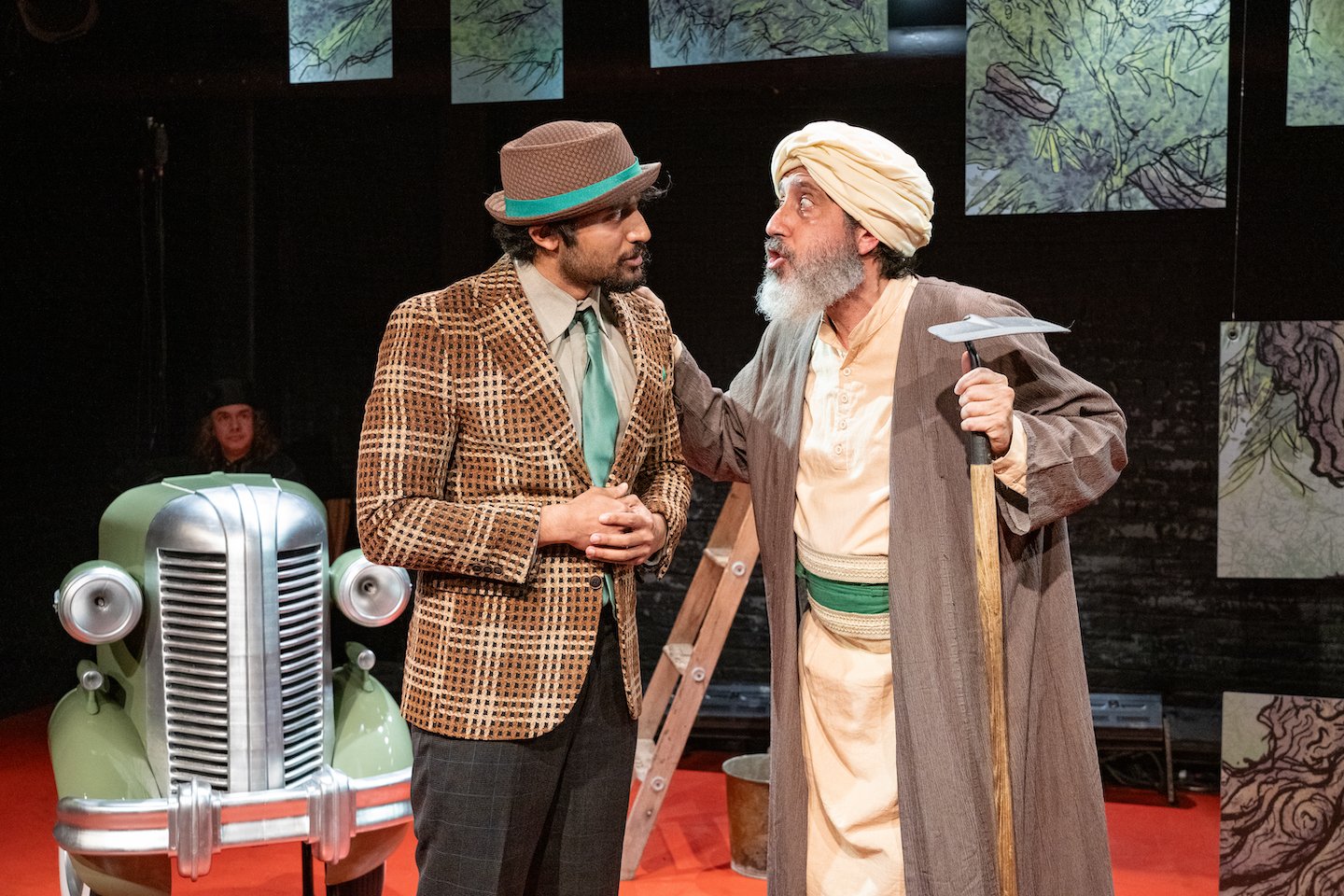
Mahmud - Herb Gordon (Hari Baskar) and Amir (Mark Quiles)
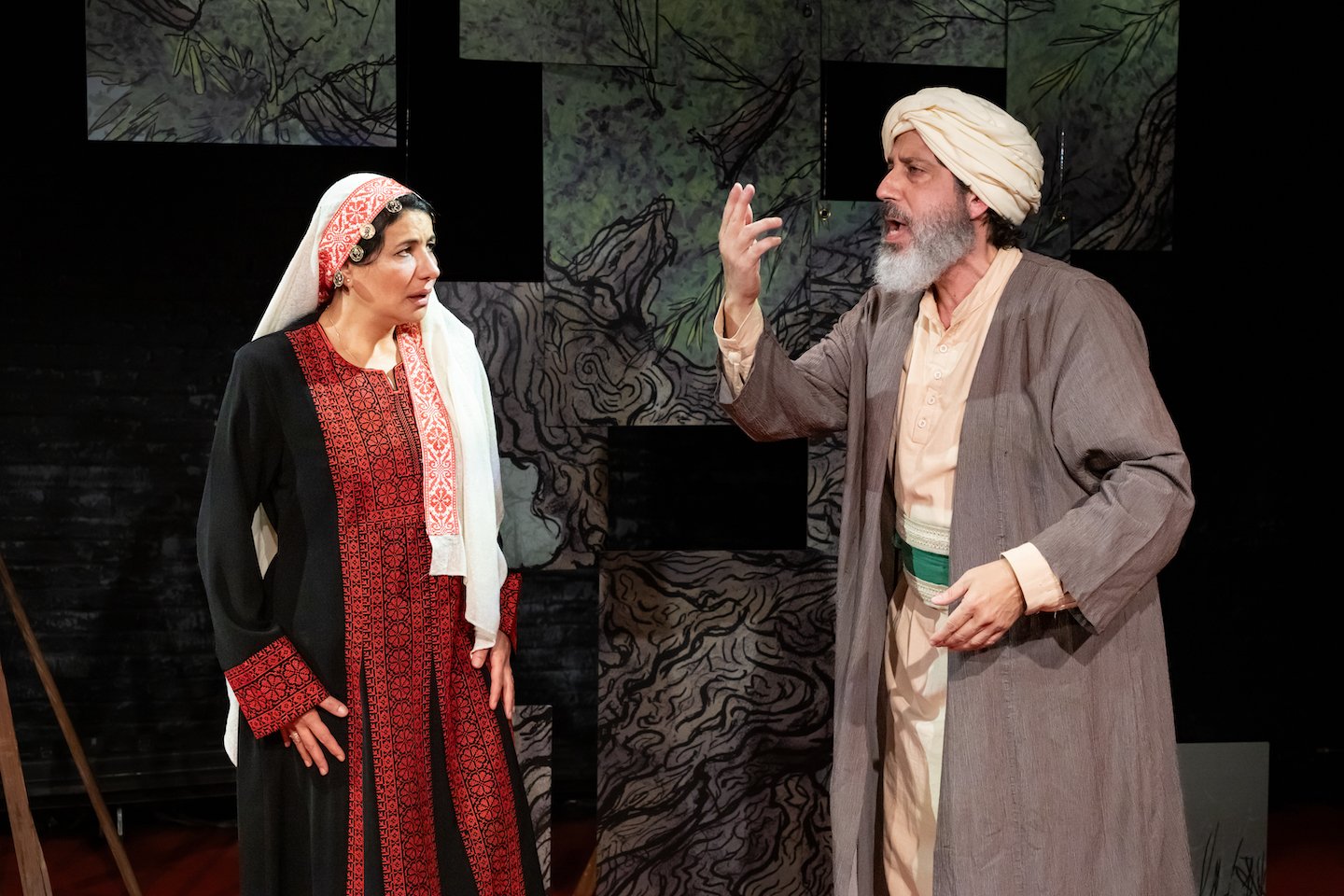
Fatima (Inji El Gammal) and Amir (Mark Quiles)

Melke (Mark Peters) and Shoshana (Jennifer Tulchin)
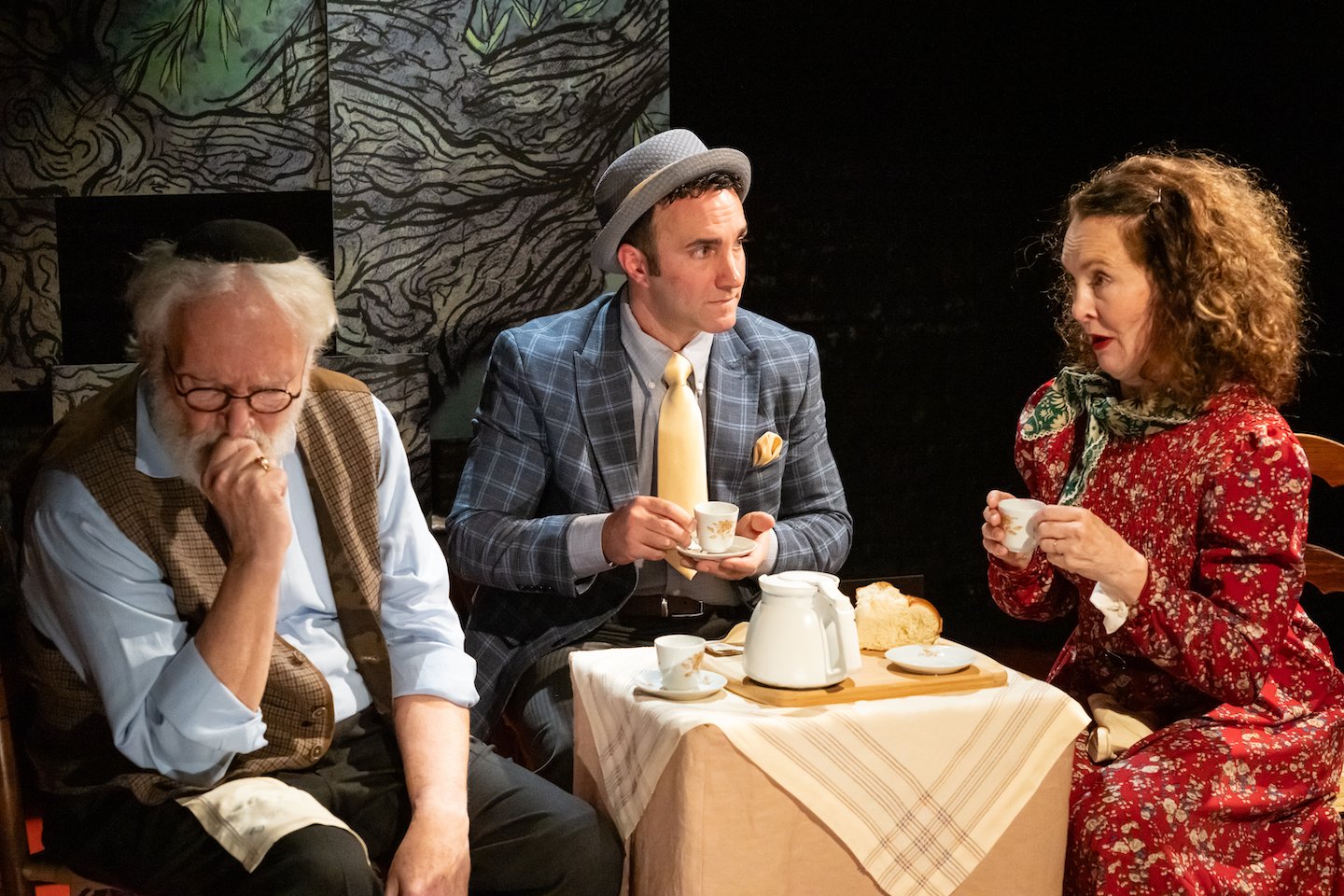
Melke (Mark Peters), Moritz - Herb Gordon (Gary Brintz) and Shoshana (Jennifer Tulchin)
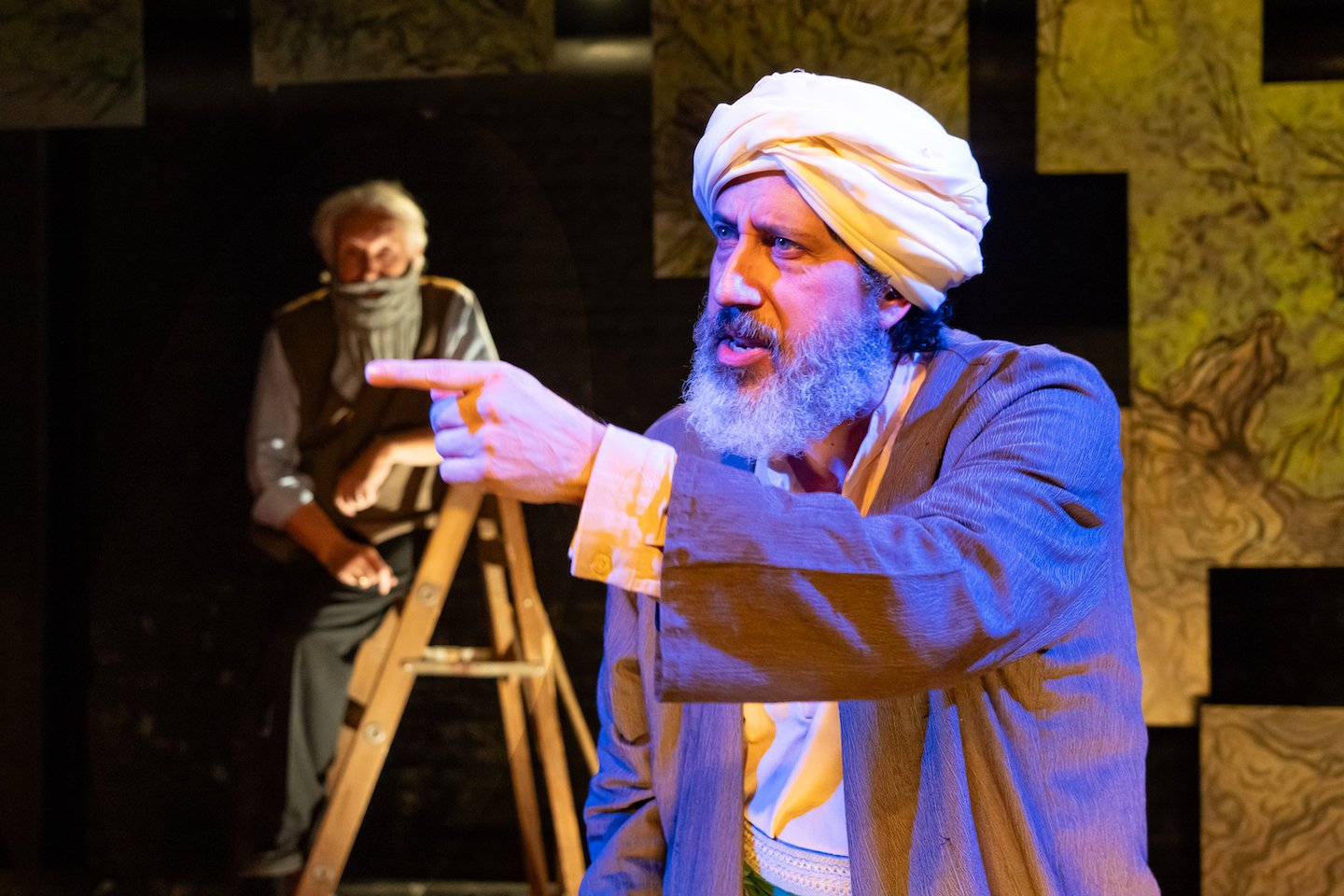
Amir (Mark Quiles) and Abraham (Mark Peters)
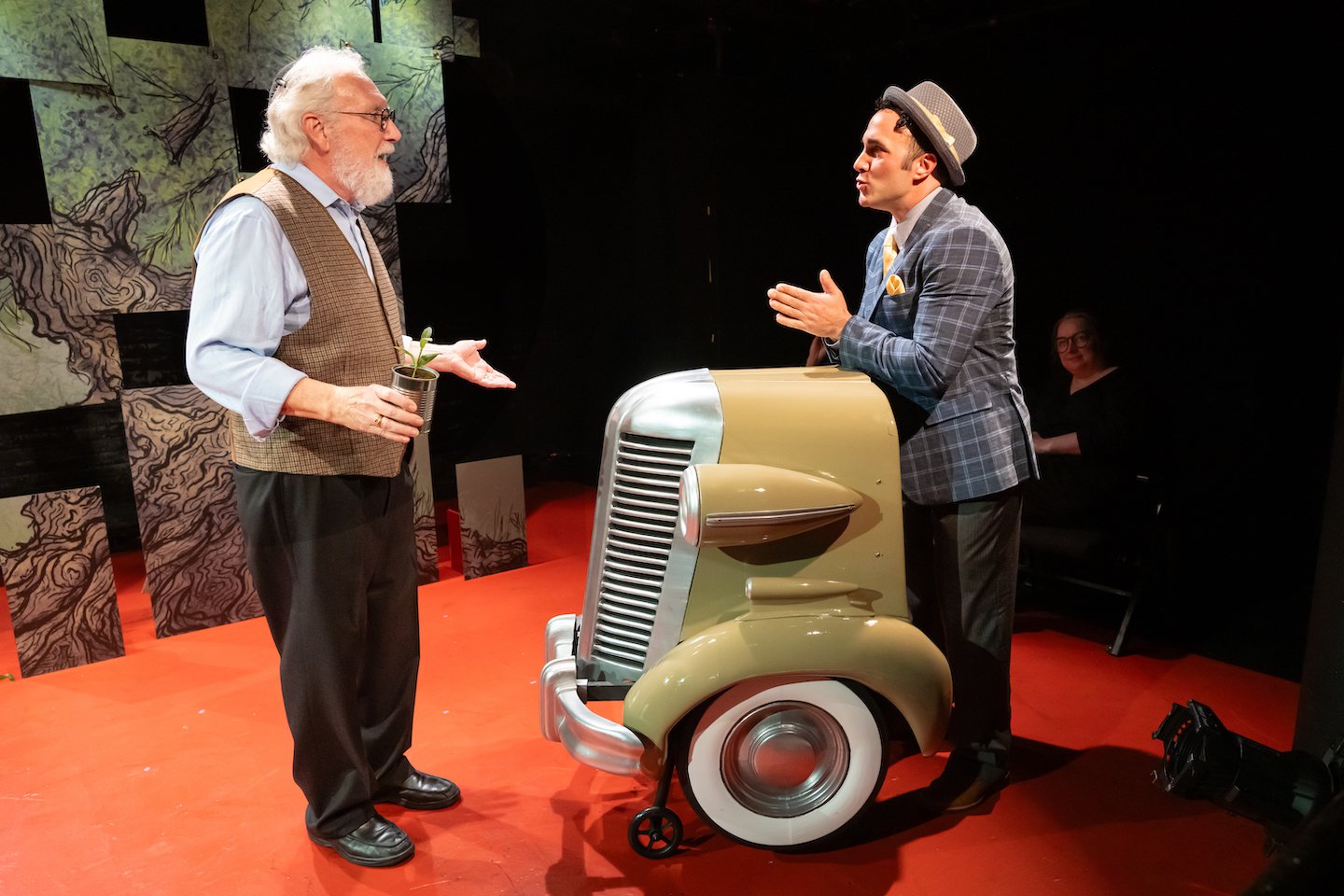
Melke (Mark Peters) and Moritz - Herb Gordon (Gary Brintz)
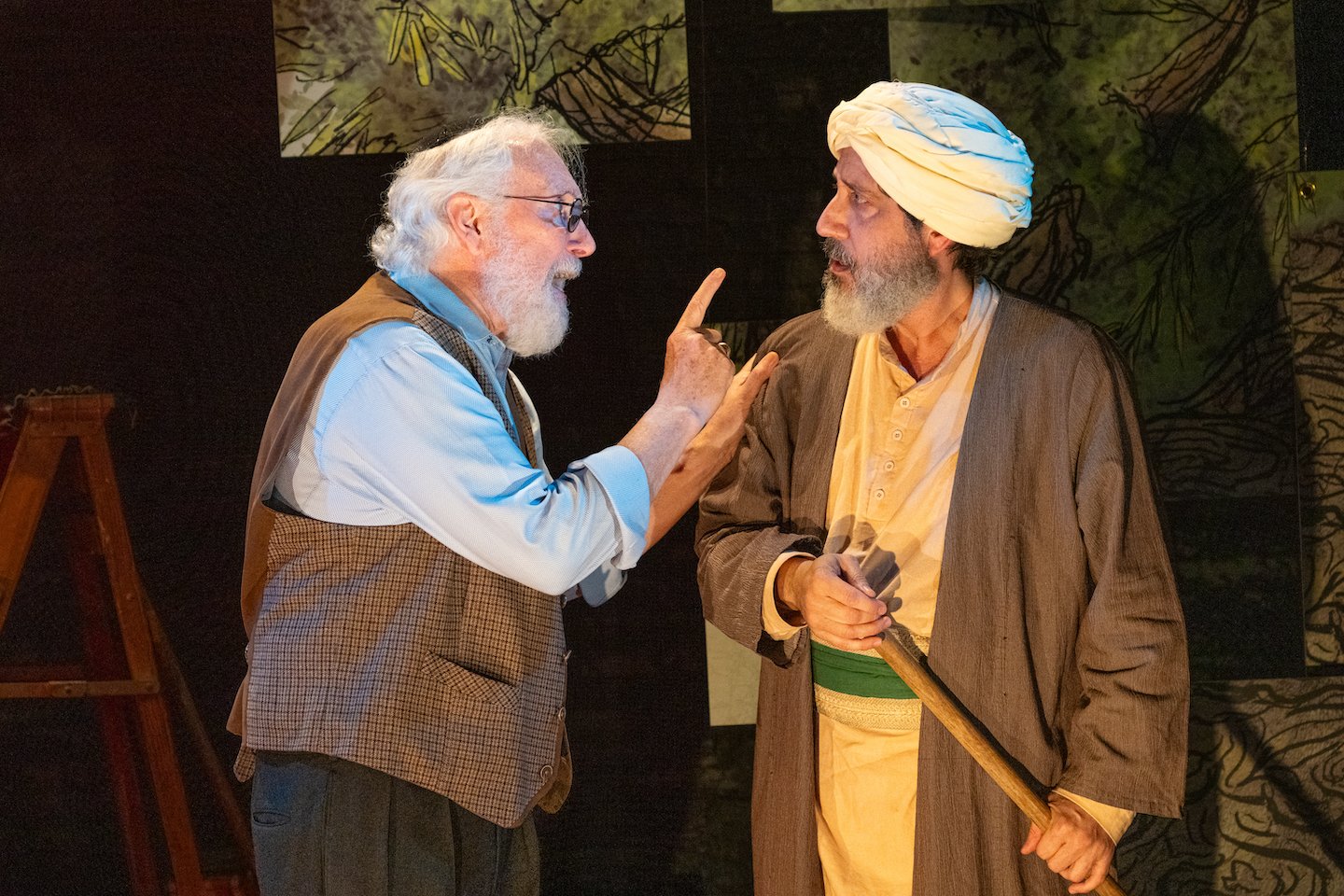
Melke (Mark Peters) and Amir (Mark Quiles)
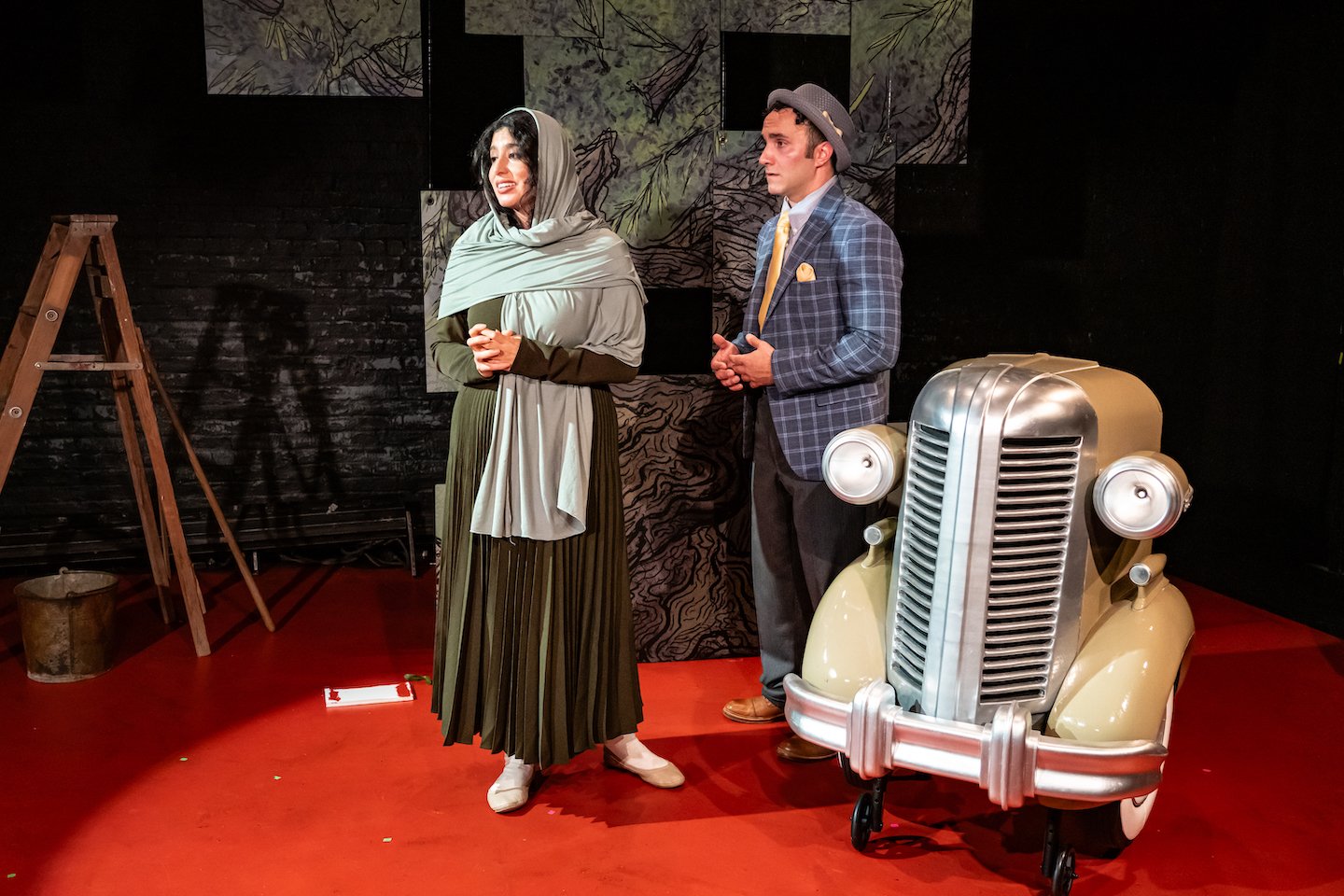
Rashida (Maya Koshaba) and Moritz - Herb Gordon (Gary Brintz)
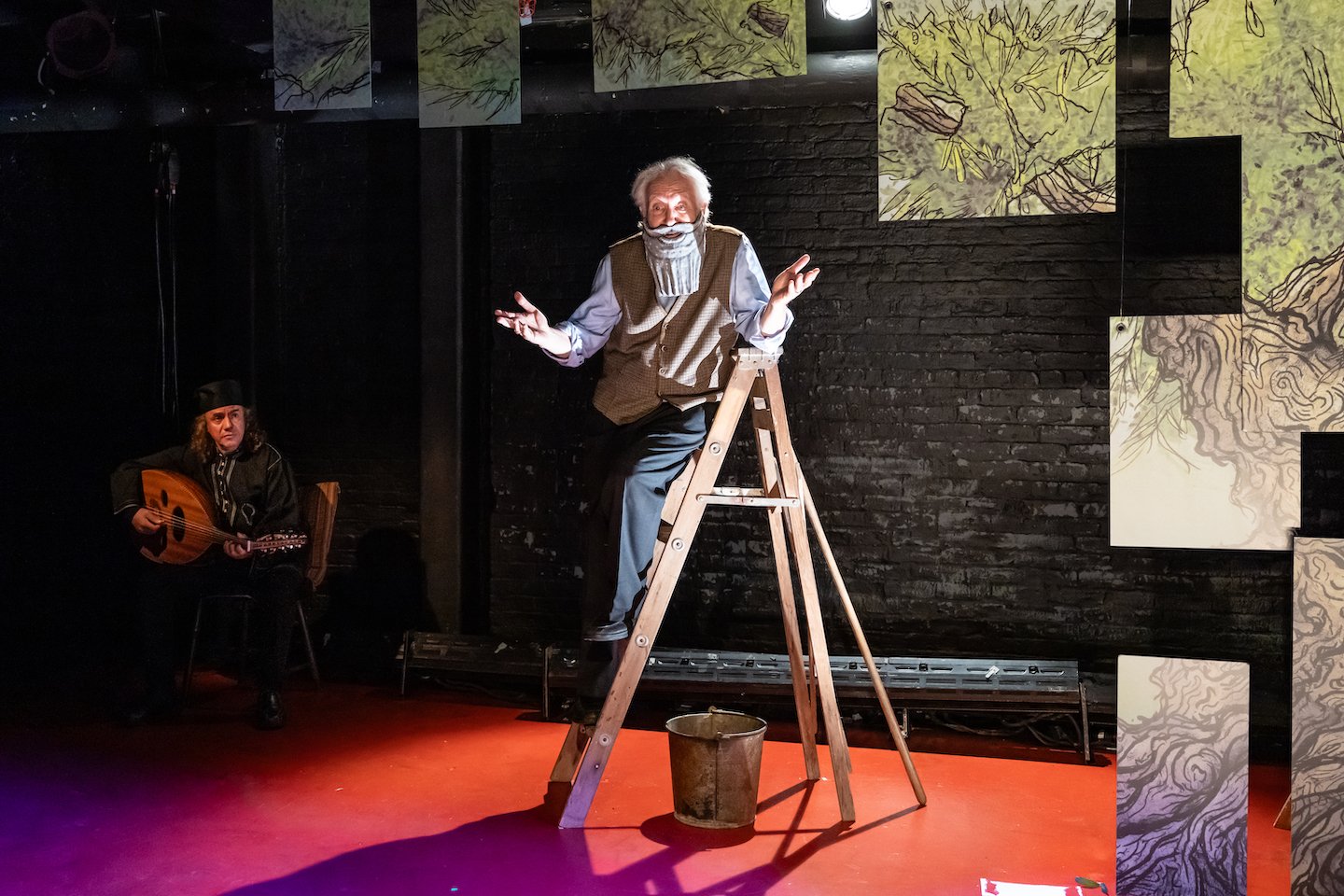
Abraham (Mark Peters) and Oud Player (Rachid Halihal)
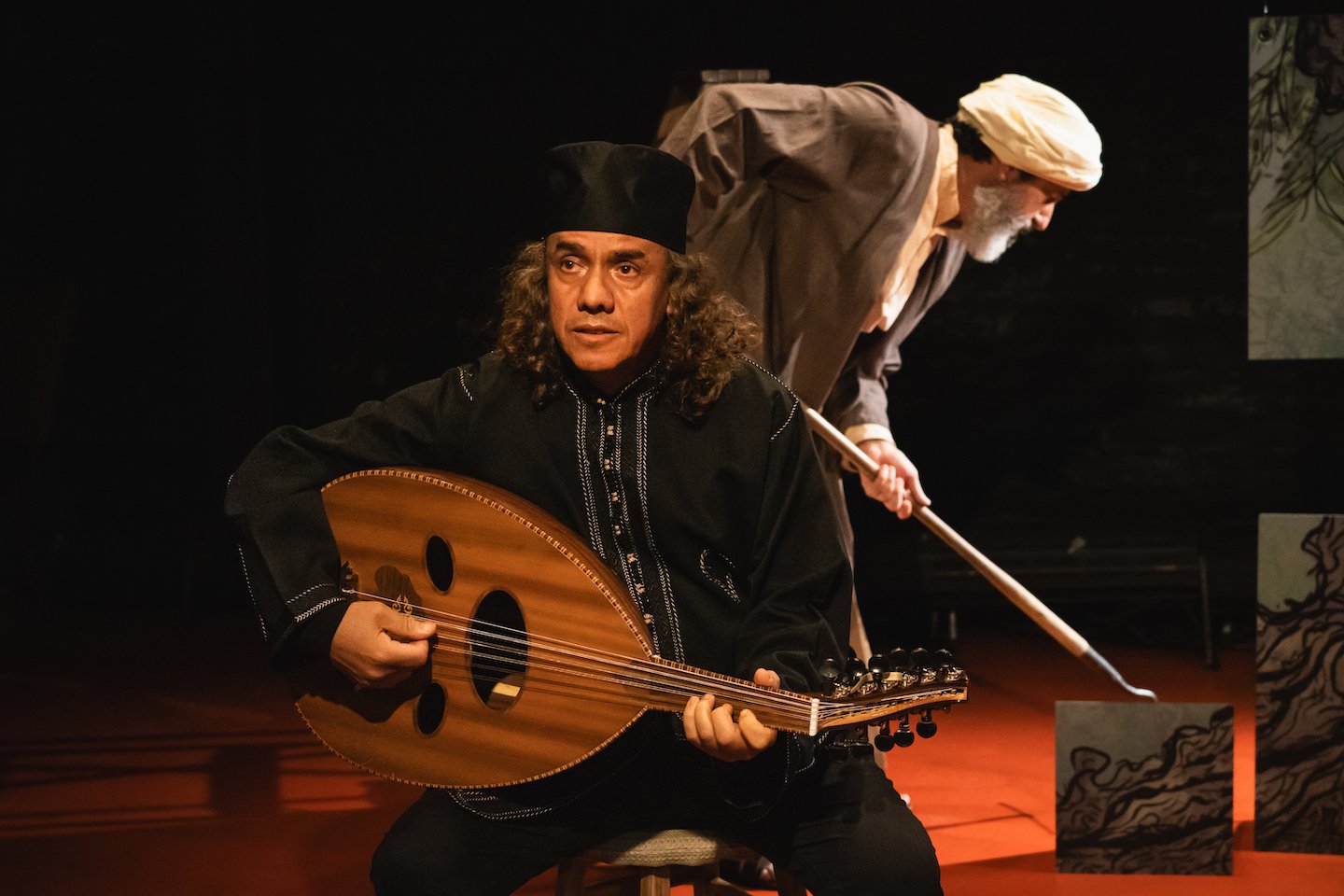
Oud Player (Rachid Halihal) and Amir (Mark Quiles)
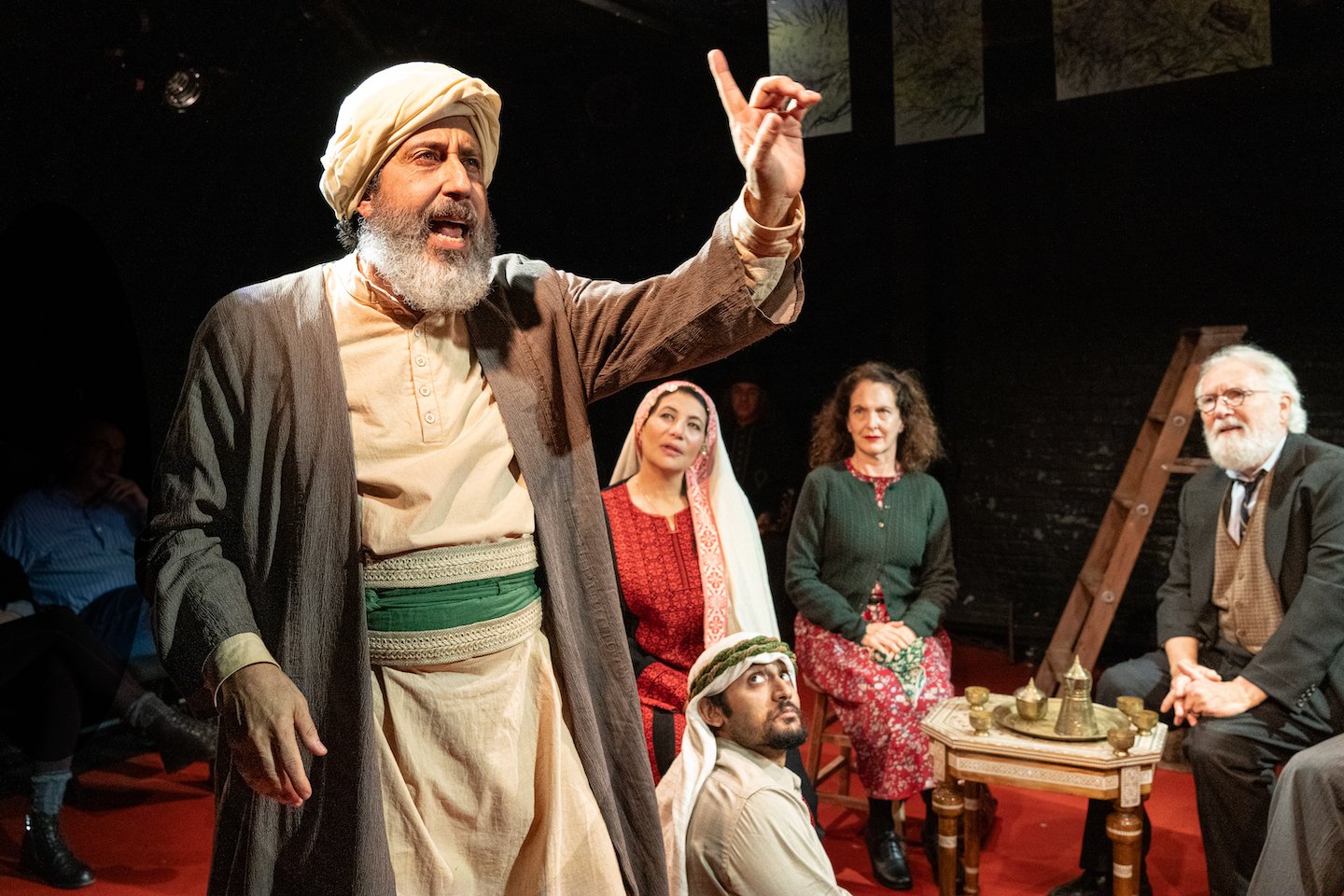
Amir (Mark Quiles) with Fatima (Inji El Gammal), Mahmud (Hari Bhaskar), Shoshana (Jennifer Tulchin) and Melke (Mark Peters)
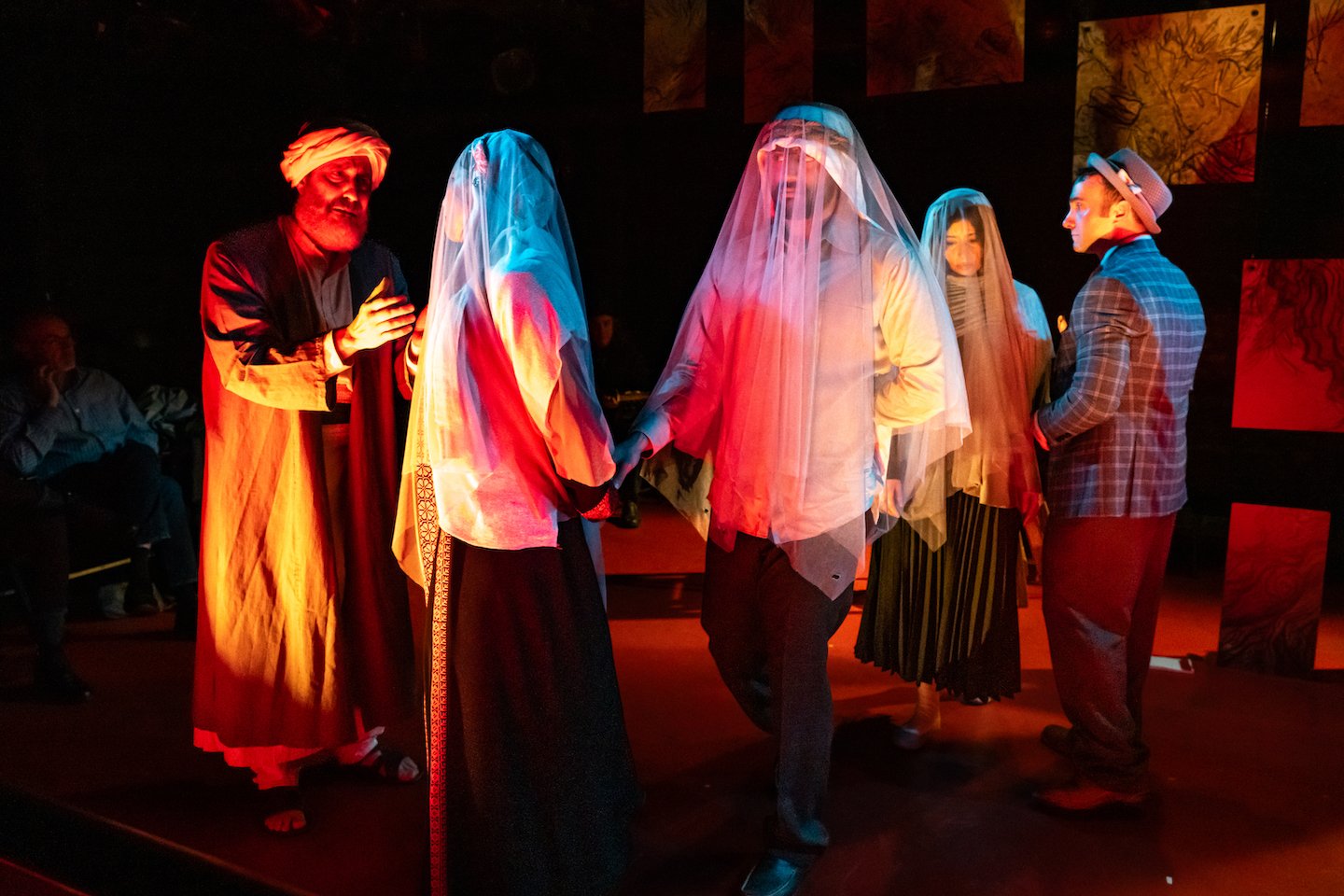
Dance of Death
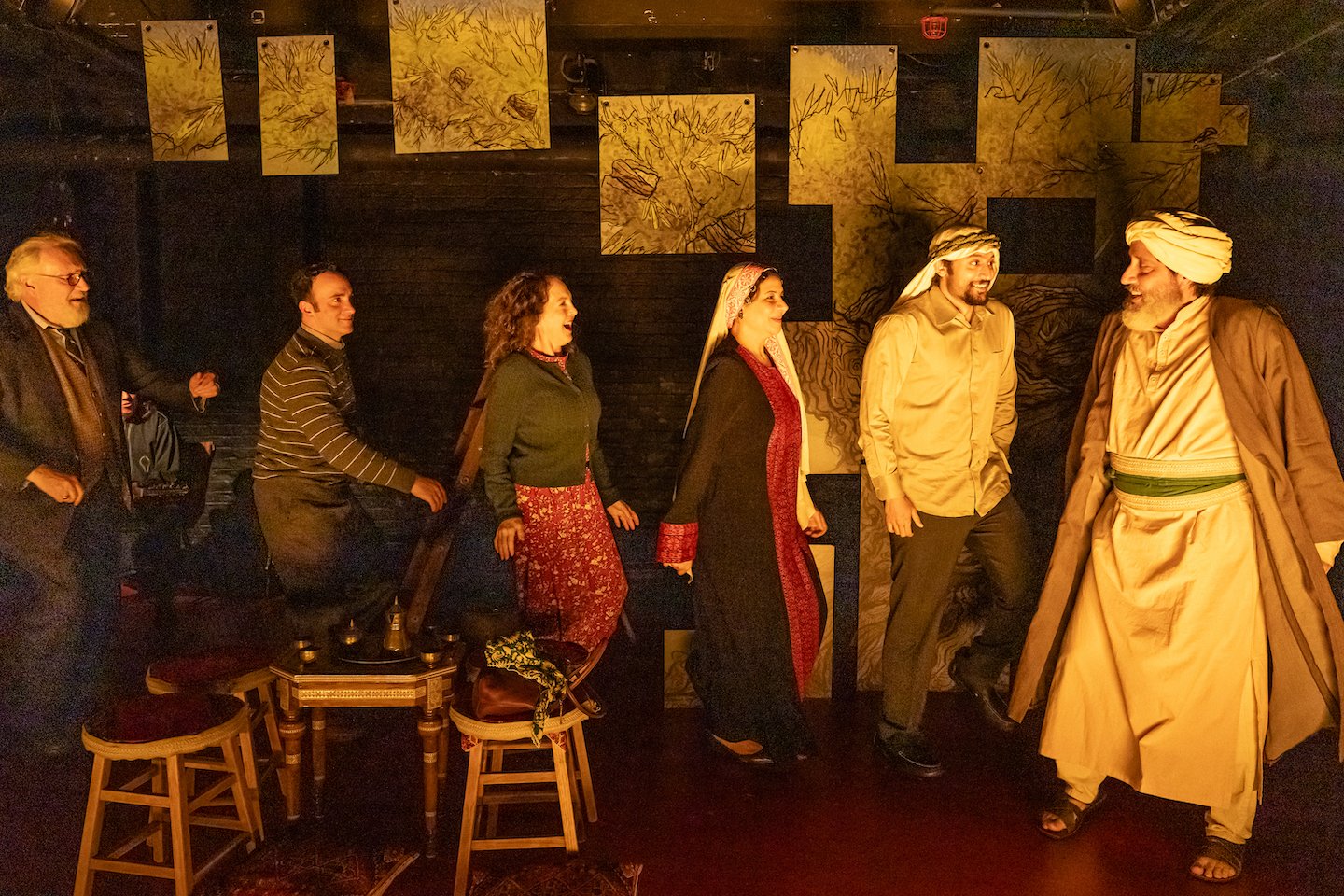
Dance at Tea Time